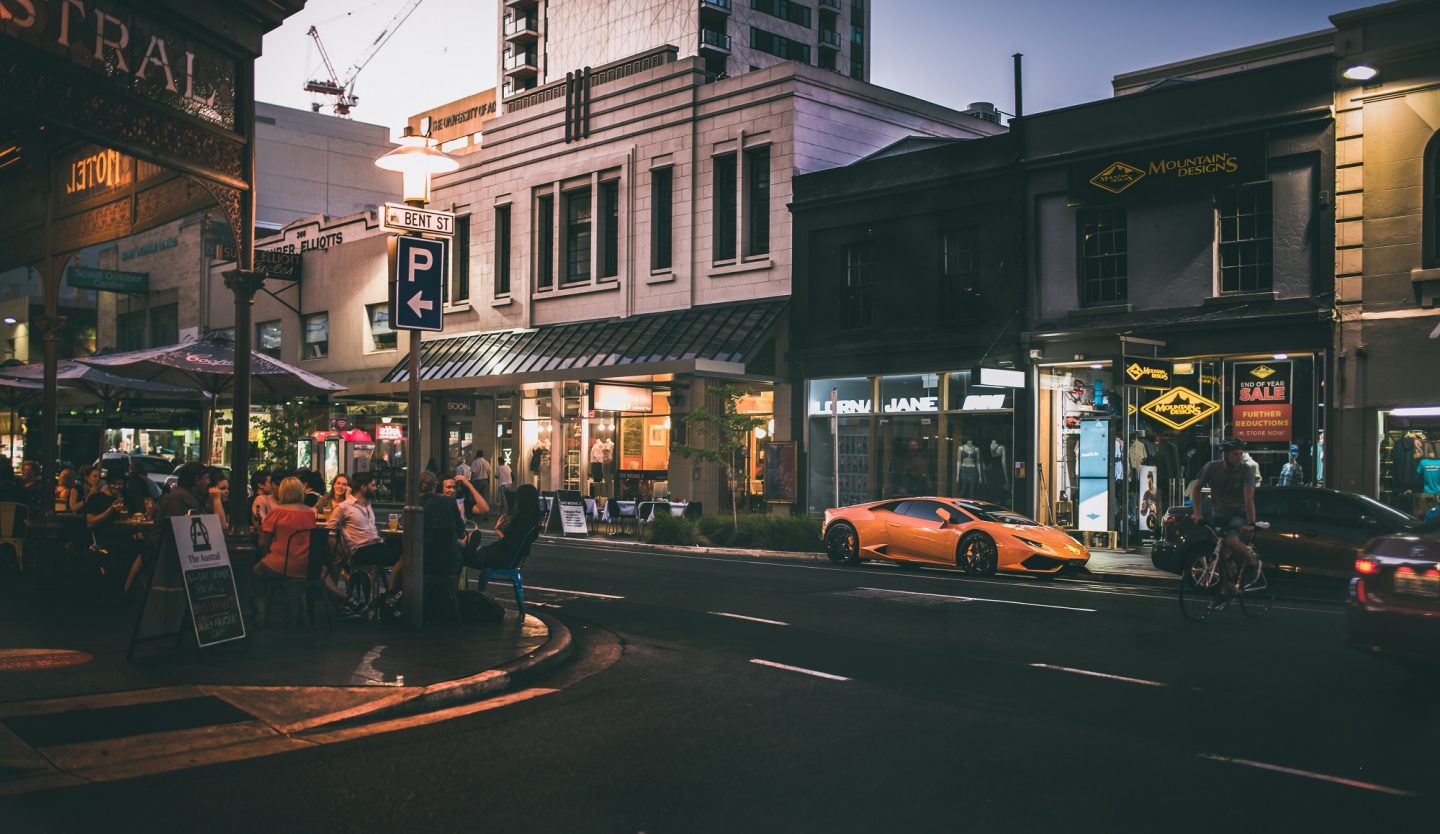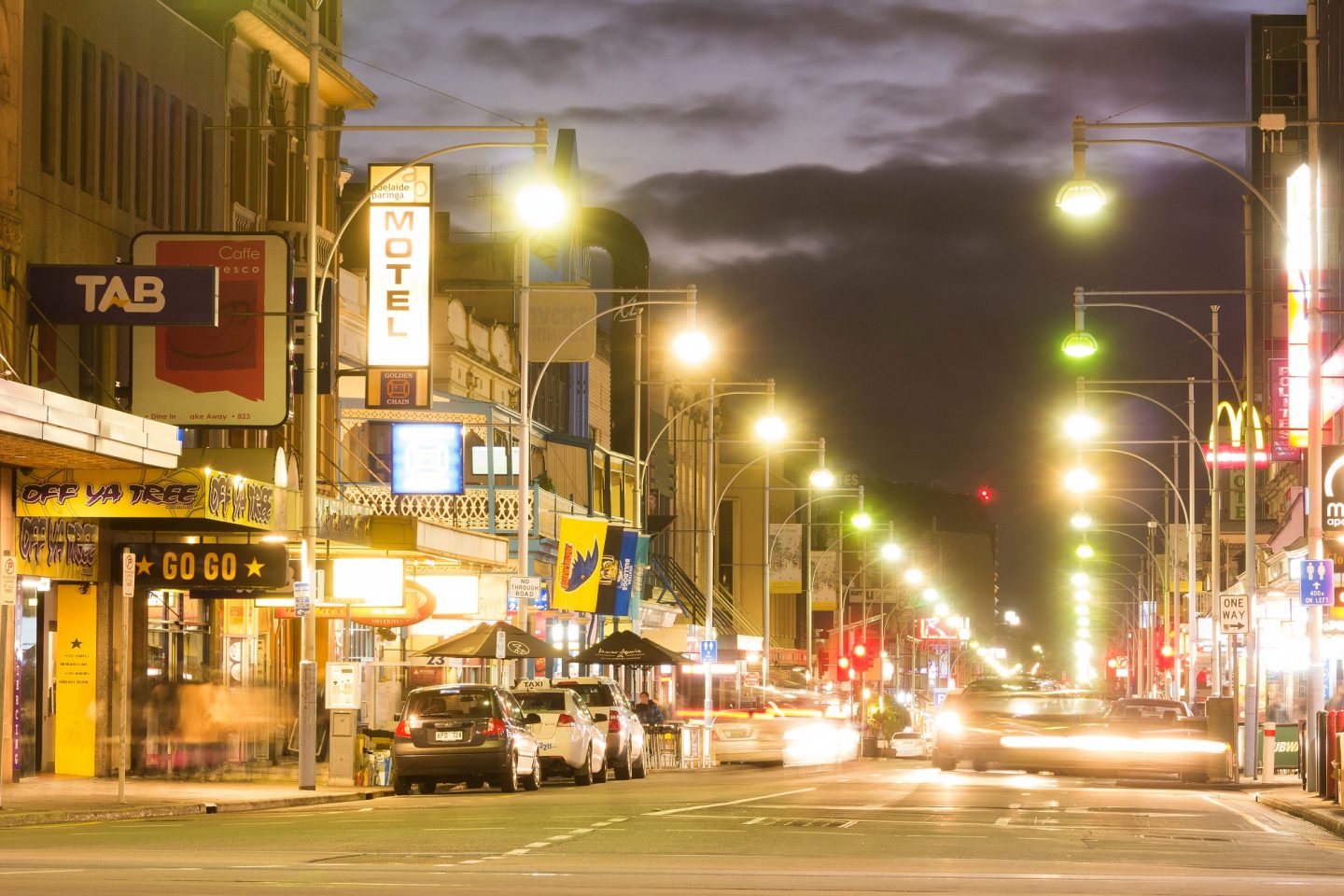
Walter Marsh
Walter is a writer and editor living on Kaurna Country.

Over the weekend New South Wales Premier Gladys Berejiklian confirmed plans to revise Sydney’s controversial 1.30am lockout laws. But is it time South Australia’s own lockout laws called it a night?
Initially introduced as a solution to violence in late night hot spots such as King’s Cross and Oxford Street, Sydney’s lockout laws, in tandem with a rise in residential development, have had a transformative effect on the city’s night life since their introduction in 2014. While former Premier Mike Baird pointed to a significant, if contested, 42% drop in alcohol fuelled crime when responding to critics, it seems the Berejiklian government has adopted a different approach after years of venue closures and mounting concerns that violent behaviour has simply been shifted to areas outside the lockout zone,
Aside from the resignation of her predecessor, dubbed ‘Casino Mike’ by his critics for the exemptions given to Crown Casino, the intervening years have seen significant opposition emerge in the form of mass protests, an ill-fated political party and a single by Flume.
In Adelaide, the former Labor state government introduced its own lockout laws ahead of Sydney’s as part of a new Late Night Code in 2013. Although Adelaide’s new lockout laws took effect at 3am instead of Sydney’s 1.30am, by 2015 several late night destinations such as Savvy, Cuckoo, Lavish, Shotz and, briefly, the Dog and Duck had closed, citing the chilling effect of the measure as a key factor. Following a July 2015 review of the laws, which noted a 12.2% drop in CBD incidents reported the police between 12am and 7am in the year following the Code’s introduction, a government update of the Code in the same year largely maintained the status quo – resisting calls by then-Police Commissioner Gary Burns to bring the lockouts forward to 2am.

Critics at the time noted that this figure perhaps owed as much to the raft of other measures also introduced in the Code, including better queue management and restrictions on glassware and varieties of alcohol being served, alongside an increase in policing of the strip.
Since taking office in 2017 the Liberal state government has scarcely addressed the Code, which remains in effect. Instead, the Hon Tim Anderson QC’s substantive 2016 review of the state’s liquor licensing system was used to inform changes to licensing fees, which appear to be the current government’s preferred avenue for managing the city’s late night culture and its perceived risks.
As The Adelaide Review reported in May, the revised fee structure due to take effect in November forces venues that trade until 3am, 4am and 5am to pay an additional $2,000, $6,000 and $15,000 respectively. Additionally, venues deemed ‘high risk’ – by either being located on Hindley Street or by hosting ‘sexually explicit’ entertainment, boxing or martial arts – faced a further $500 fee. The changes were met with concern from operators and patrons around Adelaide, especially among venues that were already working under challenging trading conditions since 2013.

The 2016 Anderson review did address the issue of lockout laws, however, noting that Adelaide’s laws were in step with similar regimes in Brisbane and Darwin, with only Sydney’s ‘Prescribed Entertainment Precincts’ coming in earlier at 1.30am. While noting several stakeholders were broadly supportive of the lockout’s continuation – including an undisclosed number of licence holders within the late night economy – Anderson suggested most evidence of the lockout’s success was anecdotal, and recommended its retention for a further two to three years to gather more quantitative data.
While three years have now passed, no further studies have been forthcoming. “The Government does not have any plans, at this stage to review the current 3am lock out laws introduced by the former Government,” a state government spokesperson told The Adelaide Review today.
But, perhaps, that inertia is itself a small mercy: Anderson’s review also recommended the even harsher measure of enforcing a “break in trade”, with licensed venues obliged to stop the sale of liquor between 3am and 9am or close entirely for the period. Such a harsh new measure would inevitably invite sustained opposition from business owners and clubgoers, making its future adoption unlikely.
Viewed alongside the recent fee changes however, it does suggest there is little likelihood of the city’s late night economy being opened up any time soon.
Author’s note: This article draws on substantial reporting by Daniela Frangos and myself published between 2014 and 2016 on ripitup.com.au

Walter is a writer and editor living on Kaurna Country.